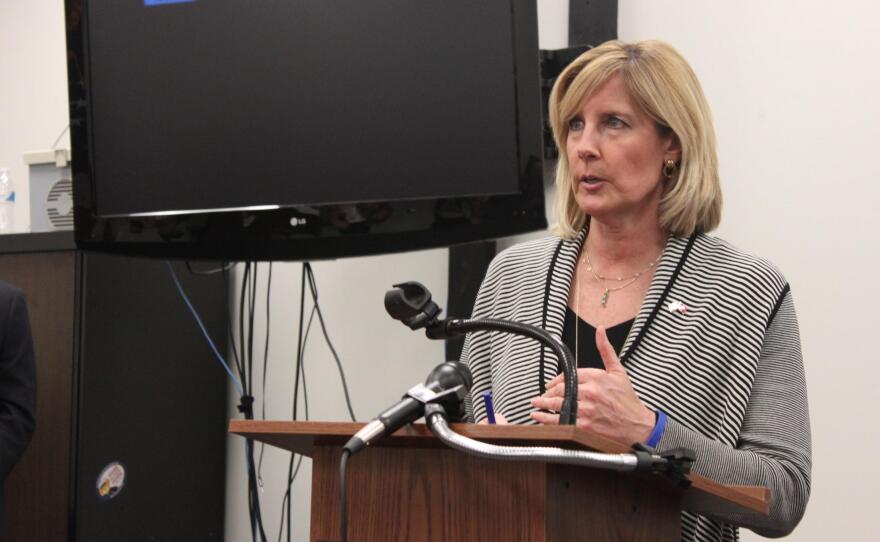Jobs were a major topic at a candidate forum at SUNY Broome for the 22nd Congressional District Thursday. But climate change came up as well, and there were definite differences in how the three candidates talked about it.
Democrat Kim Myers advocated for government incentives to develop new technologies.
"I would make sure that we’re looking at what we can do, whether it’s incentives to develop clean energy [or a] reduction on fossil fuel," she said.
One of Myers’ opponents, Martin Babinec, who's running on the Reform Party and Upstate Jobs lines, also endorsed incentives for a transition to renewable materials. But it came with a caveat.
"Deciding where are we going to put government resources and helping in this transition shouldn’t be corporate welfare, with the government trying to pick winners and losers," Babinec said. "That’s best done by the private sector."
Republican Claudia Tenney argued that renewable energy projects don’t solve the problem.
"We need to have real solutions to identify what we need to do," Tenney said.
She also tried to cast doubt on the well-established scientific consensus about climate change.
"The science is not determined. It’s not certain," Tenney said at the forum.
Tenney did say, however that climate change is real, though she’s skeptical polluters like China would truly adhere to any effort to reduce carbon emissions.
Despite the candidates different perspectives on the topic, the race is tight. A new poll shows Tenney at 35 percent, Myers at 30 percent, and Babinec at 24 percent.










